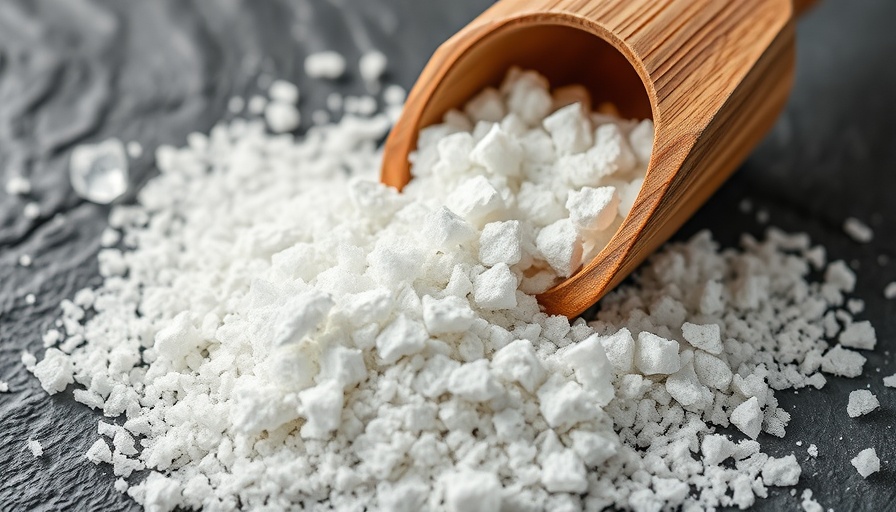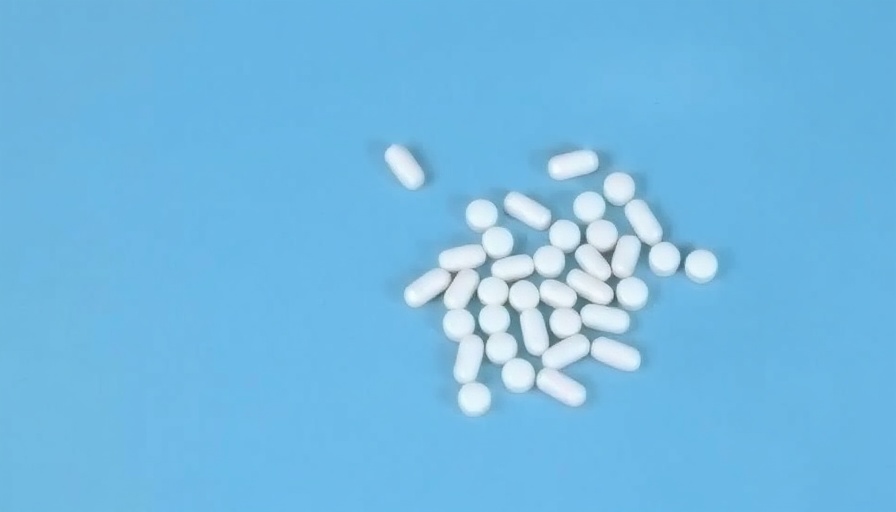
The Sodium-Potassium Balance: Why It Matters
Americans today are facing a nutritional crisis, primarily characterized by an alarming imbalance in sodium and potassium consumption. With our average sodium intake soaring to more than four times the level our bodies are naturally built to handle, it's clear that we need to recalibrate our dietary habits. Historical dietary patterns show that our ancestors thrived on a potassium-rich diet supplemented by low sodium, a stark contrast to the current trend of highly processed foods that flood supermarket shelves. This shift not only leads to harmful health outcomes but also highlights the urgency of restoring balance through our food choices.
Why Is Potassium Essential for Our Health?
Potassium plays a crucial, dual role in maintaining our cardiovascular health and overall well-being. It has been shown to lower blood pressure and reduce the risk of strokes and heart disease. Yet, a staggering 98% of Americans are not consuming the recommended daily intake of this essential mineral. By incorporating more potassium-rich foods—such as fruits, vegetables, legumes, and nuts—into our diets, we can combat the negative health impacts of high sodium intake. Furthermore, potassium can counteract some of the adverse effects associated with excessive sodium consumption, making it vital for maintaining cardiovascular health.
Counteracting High Sodium with Low Sodium Alternatives
As the dangers of high sodium intake come to light, many are turning to potassium chloride as a salt substitute. Though marketed as a healthier alternative, questions linger regarding its long-term safety and efficacy. While potassium chloride can indeed help reduce sodium intake, it's important to remember that the most effective strategy lies in enhancing a diet rich in whole, natural foods rather than simply replacing table salt with chemical substitutes. Emphasizing a whole foods approach enables individuals to obtain balanced amounts of sodium and potassium naturally, without relying on artificial additives.
Strategies for a Potassium-Rich Diet
For health-conscious consumers seeking to embrace a potassium-rich lifestyle, there are a few practical strategies to consider:
- Focus on Whole Foods: Aim for meals centered around whole grains, fruits, vegetables, and legumes. These foods are not only rich in potassium but also packed with essential nutrients that support overall health.
- Read Labels: Become informed about sodium levels in packaged foods. Seeking low-sodium alternatives can help in reducing overall sodium intake.
- Meal Prep: Preparing home-cooked meals allows for greater control over sodium levels while ensuring that potassium-rich ingredients are incorporated into daily menus.
By making small but significant changes, everyone can take proactive steps towards achieving a more balanced intake of these essential minerals.
Common Misconceptions About Salt Substitutes
Despite the allure of salt substitutes like potassium chloride, protecting public health requires informed choices. Many believe that such substitutes will effectively balance their sodium intake; however, this assumes that individuals are already maintaining good dietary habits. The reality remains that dietary deficiencies are prevalent due to unhealthy food choices. Education on these risks is paramount to altering perceptions and improving overall public health outcomes.
Findings from Recent Research on Sodium and Potassium Variations
Recent studies have consistently shown that diets lacking in potassium contribute significantly to population-wide health issues, validating that increasing potassium consumption can help mitigate risks associated with high sodium intake. This reinforces the importance of shifting towards a nutrient-dense diet that prioritizes fresh produce and whole foods.
Take Action Towards Better Health Today!
As we continue to fight against dietary-related health crises, it’s essential to prioritize the shift back towards a potassium-rich diet. By focusing on fresh, whole foods, decreasing processed food intake, and advocating for health education, we can create a sustainable path towards better health for ourselves and future generations.
Take the first step by analyzing your current diet and making conscious choices that prioritize potassium-rich foods and decrease sodium intake. Each small effort counts towards a healthier life!
 Add Row
Add Row  Add
Add 




 Add Row
Add Row  Add
Add 


Write A Comment